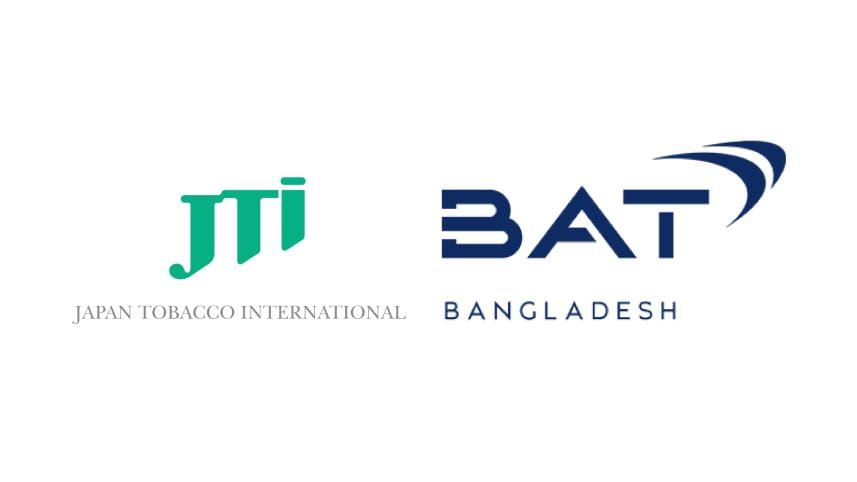Japan Tobacco accuses BATB of anti-competitive practices

The Bangladesh Competition Commission (BCC) is investigating a complaint of anti-competitive practices filed by Japan Tobacco International (JTI) against British American Tobacco Bangladesh (BATB).
In its complaint, United Dhaka Tobacco Company Ltd (UDTCL), a concern of JTI, alleged that BATB was abusing its dominant position.
JTI filed the case in March last year -- three years after it entered Bangladesh's tobacco market by acquiring UDTCL for $1.47 billion (about Tk 12,430 crore) in 2018 from Akij Group.
Bangladesh is one of the largest tobacco consumers in the world, and nearly 8,400 crore sticks of cigarettes are sold annually.
And when JTI entered Bangladesh, UDTCL had a 19.8 per cent share in the cigarette market. The share has since slipped to 12.6 per cent, what JTI said, is due to BATB's anti-competitive practices.
BATB is the leading cigarette seller in the country, followed by JTI and Abul Khair Tobacco Ltd.
BATB had more than 95 per cent share in the premium and high segment of the market, according to a 2019 study, The Economics of Tobacco Taxation in Bangladesh, by Brac Institute of Governance and Development.
Its share in medium and low segments was 65 per cent and 58 per cent respectively.
JTI, which markets cigarettes in all segments, alleged that BATB operates a programme with its retailers, directly or indirectly, to prevent competition in the market and stop rivals from gaining more market access.
Under the programme, if a BATB partner retailer stocks or sells products of United Dhaka Tobacco, BATB or its representatives penalise and deduct loyalty points from the retailers, which translates into retailers being deprived of lucrative incentives.
Or even worse, BATB threatens to stop supplying its products to the retailers, JTI said.
"BATB runs the programme directly and/or indirectly through its representative and/or distributor," said JTI, adding that it earlier requested BATB to put an end to all programmes and acts that restrict competition.
BATB responded to the complaint and denied the allegations, according to the JTI complaint.
Contacted, Shezami Khalil, head of corporate communications and sustainability at the JTI, said UDTCL has reached out to relevant authorities and stakeholders to establish a level playing field and seek a fair and just business environment.
"BAT Bangladesh has been doing business in this country for more than 110 years by complying to all rules and regulations of the country. Apart from being the highest tax payer, we have received multiple accolades from the government for our benchmark governance and business practices. Commission's process is ongoing in this matter," said Sheikh Shabab Ahmed, head of external affairs of BAT Bangladesh.
Md Mofizul Islam, the chairperson of the Competition Commission, says the commission is investigating the case.
"We will try to give a verdict as soon as possible after holding a hearing."




 For all latest news, follow The Daily Star's Google News channel.
For all latest news, follow The Daily Star's Google News channel.
Comments